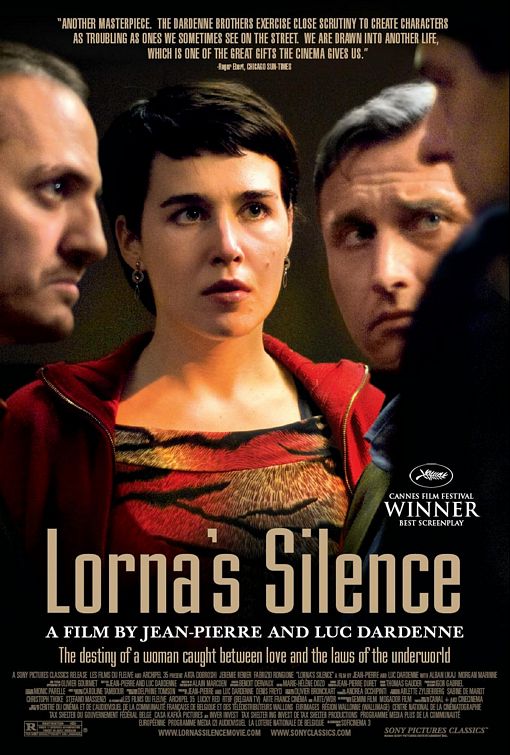Box Office Review: Lorna’s Silence [2009]
Reviewed by Richard Lee Zuras
Released July 31, 2009
1 hr. 45 min.
R
The Dardenne Brothers/IFC Films
Arta Dobroshi
Jeremie Renier
Why does Roger Ebert, Cannes Film Festival, and a host of other people love the films of the Dardenne Brothers? In part, to paraphrase a famous axiom from Mr. Ebert: you haven’t seen this film before. Lorna’s Silence is such a film you have never seen. Who else but the Dardenne Brothers ( of L’Enfant fame) would bring us a story of an Albanian woman who attempts to flourish in Belgium by marrying a drug addict so she can gain citizenship, divorce, and then marry to provide citizenship to a wealthy Russian mafioso? And when I say bring us a story I mean write it, produce it, direct it. These are two talented men, and their films should be on your list.
But though most critics love Lorna’s Silence (Ebert gives it 3 ½ stars out of 4), there are those in the audience that will not. And without spoiling the film for you, let me now supply you with one piece of advice (the original job of the critic was to save or spend your money, after all): don’t go see this or eventually pay to rent it if your beef with foreign films is a (very American) disdain for “open” endings. This film has one. I won’t ruin it for you. But let me just recount the words of the cinema patron to my left as the credits rolled: “Damn foreign films.”
And you will see (should you go) one of two things happening when the credits roll:
1. Everyone is hoping that after a minute or two the film “will roll” again, and we will get some closure. (I watched this, and felt like screaming “It’s over. They’re not going to give you an ending!”)
2. Everyone is contemplating the possible ending(s) they believe the film has set-up.
Or, I guess, there is a third option. And that option might simply be reader-response. You are either glass half full or half empty. But trust me, you will have to work at the end of this film.
The reward? This is a sensational script, the film is populated by lasting characters, and the lead is played flawlessly by actress Arta Dobroshi. She is so good, so unique, that I struggle to find an actress to compare her to. Her face is that of a silent film star. Her features actually express emotions even when they seem inert. It is one of the only performances you will actually feel.
The drug addict, with which Arta shares several convincing scenes, is played with absolute vermilitude by Jeremie Renier. Their scenes are so weighted that had the Dardenne brothers pulled those scenes out and released a short film containing only their relationship– it would stand on its own. They are the kind of actors one “discovers” and begins to line one’s Netflix cue with their previous films.
The film really is that good. Unless you need full closure, in which case it is that bad.
Bottom Line: 4.0/5.0



Leave a Reply